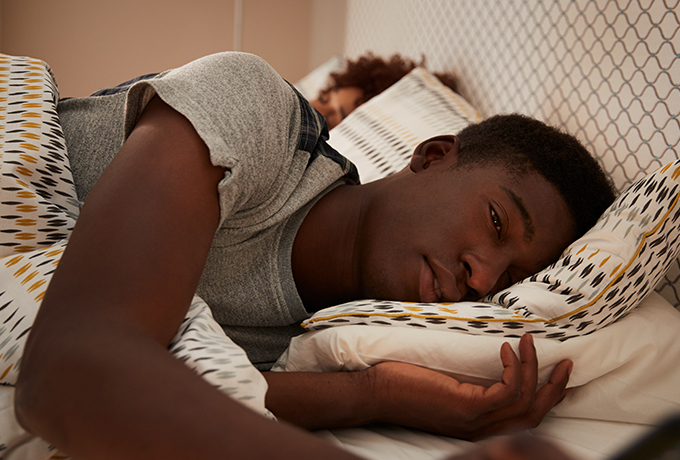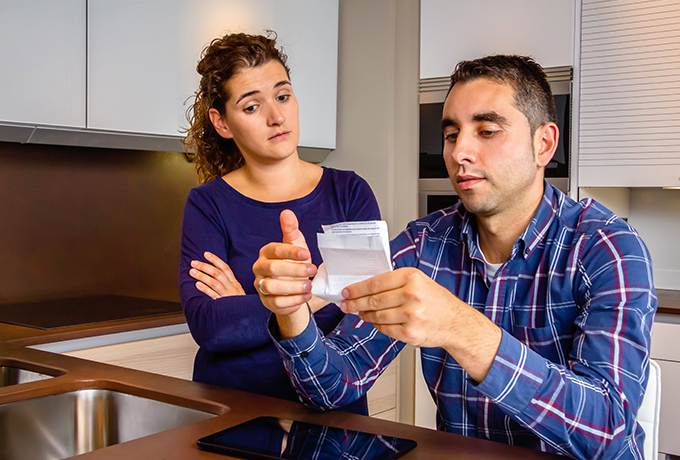Feeling stressed out and how to get help
You know what stress is. But what causes stress, and how can you better manage it?
Read moreFeeling suicidal can be an overwhelming and painful experience, but it is not something you have to bear alone. You can get help. There are services and professionals available to support you through this difficult time.

Feeling suicidal can be an overwhelming and painful experience, but it is not something you have to bear alone. There is help and professional support for anyone affected by suicide.
There are services and professionals available to help you through this difficult time. You may wish to speak to someone over the phone or prefer to seek help face-to-face. Whichever you choose, be honest about your situation and how you’re feeling so you can get the support you need.
If it is an emergency, please call 000.
Telephone counselling and crisis helplines are here to provide support and information to people who are feeling suicidal. Telephone helplines allow you to access immediate support (usually 24/7) without waiting for an appointment, getting a referral, or travelling to a health centre. Helplines can be particularly beneficial for anyone in rural or remote areas or when you can’t access your regular healthcare provider.
SuicideLine Victoria is a free, professional phone and online counselling service available 24/7. The counsellors can help you deal with the pain and distress you may be feeling and provide you with support and information about where to go for help.
Suicide Call Back Service is a free nationwide telephone and online counselling service available 24/7. The service provides immediate support to anyone feeling suicidal or impacted by suicide.
Lifeline is a free national 24-hour telephone helpline offering support to anyone in crisis.
13YARN is a free national 24/7 crisis support service for Aboriginal and Torres Strait Islander people. The service is staffed by Aboriginal and Torres Strait Islander Crisis Supporters for mob who feel overwhelmed or have difficulty coping.
Kids Helpline is a free 24/7 phone and online counselling service for young people.
Your GP is a key contact for mental and emotional health concerns. When talking to your doctor, tell them how you are feeling, what your thoughts and symptoms are, and anything else that might be relevant. Speaking as openly and honestly as possible to your GP will allow them to provide you with the appropriate support to get through this difficult time.
Your GP will assess whether you will benefit from having a mental health treatment plan. This may also involve receiving referrals for psychological or mental health treatment. Additionally, GPs will have a good knowledge of local services and can refer you to other health professionals if necessary.
If you have a regular GP, contact them and explain it is important to get an appointment as soon as possible. Book a longer appointment so you have plenty of time to discuss your situation.
If you don’t have a GP, use the Healthdirect Service Finder to find a doctor by suburb or postcode.
Victoria has a range of mental health support services that can provide treatment, information, and advice.
Mental Health and Wellbeing Local is a service that helps Victorians aged 26 years and older get mental health and wellbeing support and treatment. The service is free, and you don’t need a referral. Support is delivered in various ways, including in-person, telehealth, and outreach.
For Victorians aged 12 to 25 years old, your local headspace centre can provide you with mental health and wellbeing support. There are over 30 centres in Victoria. Visit the Headspace website to find out more information.
Mental Health and Wellbeing Connect provides support to people living with mental health and substance use challenges or psychological distress. Support is free, and you don’t need a referral. These centres are open across eight Victorian regions.
Mental health services in Victoria support people with a mental illness by providing acute, subacute, specialist, residential and inpatient community services, and community support services. These services provide treatment and care to support long-term recovery. For more information and to search for a local mental health service, visit the Victorian Department of Health website.
Medicare Mental Health is a free national service from the Australian Government that connects people to mental health support. The service can help you navigate and choose the most suitable support options, whether face-to-face, online or on the phone. You can call 1800 595 212 or visit the Medicare Mental Health website.
For comprehensive information on mental health programs, services, and resources in Victoria, visit the Better Health Channel website.
There are healthcare professionals who can provide ongoing support if you are feeling distressed. Depending on their role and area of expertise, they can provide various types of psychological therapy, medication, or refer you to other services.
For more on the different healthcare professionals, visit the websites below:
If you’re already seeing a psychiatrist, psychologist, counsellor, therapist or another professional, arrange to see them as soon as possible.
You may also be supported by a mental health nurse, who usually works as part of a wider team of health professionals. Mental health nurses work in clinics, hospitals, and community settings.
If you are in immediate danger or concerned for your safety in any way:
If you are feeling distressed, call SuicideLine Victoria on 1300 651 251 to speak to a counsellor or click the chat button on the right for online counselling. Our counselling service is free.
If it is an emergency, call 000.
You know what stress is. But what causes stress, and how can you better manage it?
Read more
Feeling suicidal can be an overwhelming and painful experience, but it is not something you have to bear alone. You can get help. There are services and professionals available to support you through this difficult time.
Read more
Your mental health, physical health, quality of life and safety is reliant on you getting enough sleep. During sleep, your body works to support healthy brain function and maintain your physical wellbeing. Sleep is just as important as a healthy diet and exercise.
Read more
Financial stress arises when there is a mismatch between your income and expenses, which leads to worry, anxiety, and uncertainty. Learn more about the signs of financial stress and how to cope.
Read more